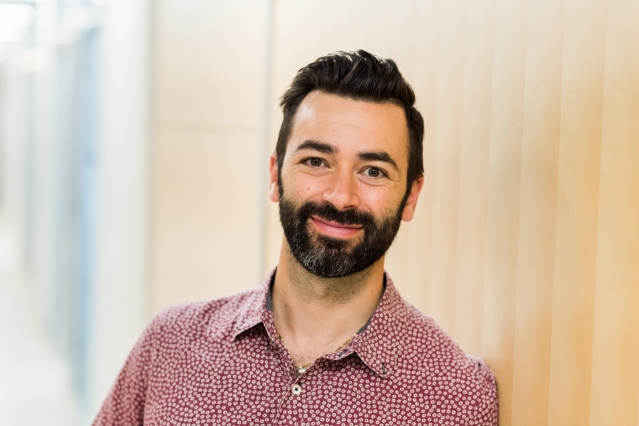
Alex K. Shalek
HST faculty member receives Avant-Garde (DP1 Pioneer) Award from the National Institute for Drug Abuse.
Alex K. Shalek, an HST faculty member and a core faculty member of the MIT Institute for Medical Engineering and Science (IMES), an associate professor of Chemistry, and an extramural member of The Koch Institute for Integrative Cancer Research at MIT, has been honored with an Avant-Garde (DP1 Pioneer) Award from the National Institute for Drug Abuse (NIDA). Shalek is also an institute member of the Broad Institute, a member of the Ragon Institute, and an assistant in immunology at MGH. IMES is HST's home at MIT.
The other awardee is Linda Chang, MD, a professor of Diagnostic Radiology & Nuclear Medicine, and professor of Neurology, at the University of Maryland School of Medicine.
The NIDA Avant-Garde Award Program for HIV/AIDS and Substance Use Disorder Research supports individual scientists of exceptional creativity at all career levels who propose high-impact research that will open new areas of HIV research and/or lead to new avenues for prevention and treatment of HIV among people who use drugs. The term “avant-garde” is used to describe highly innovative approaches that have the potential to be transformative.
The PAR-20-221: NIDA Avant-Garde Award Program for HIV/AIDS and Substance Use Disorder Research (DP1) is part of the Director’s Pioneer Award mechanism at NIDA that supports investigators with exceptional creativity proposing high impact research projects that will open new areas of HIV/AIDS research relevant to substance use disorders (SUD) and lead to novel avenues for prevention and treatment of HIV/AIDS among people who use drugs (PWUD).
Shalek's research project is entitled "Defining the impact of drug use on immune function and fitness against HIV-1" and it covers the following: Individuals with substance use disorders (SUDs) – and, in particular, people who inject drugs – are at substantial risk for infection with HIV-1 and other pathogens. To develop effective prophylactics and therapeutics against HIV-1 and other infections for these individuals, we must first understand how SUDs impact the immune system at a cellular and molecular level. The goal of our NIDA Avant-Garde DP1 proposal is to define, at unprecedented resolution, how SUDs influence immune function and response to HIV-1 and other pathogens by developing and applying innovative single-cell and bulk profiling and perturbation tools to inform the design of novel cure and prevention strategies.
More information here.